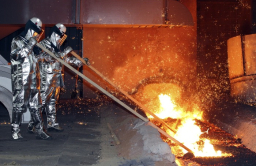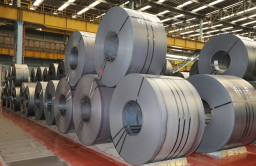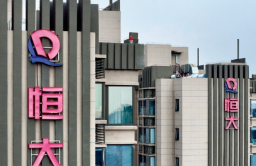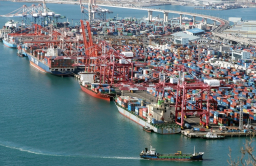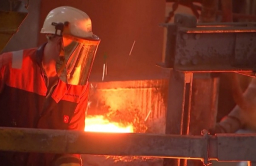-
KOSPI 2577.27 -2.21 -0.09%
-
KOSDAQ 722.52 -7.07 -0.97%
-
KOSPI200 341.49 +0.02 +0.01%
-
USD/KRW 1396 -2.00 0.14%
South Korean steelmakers face longer winter
Steel
South Korean steelmakers face longer winter
Steel prices are free-falling, showing no sign of recovery and weighing on the South Korean steel industry
By
Oct 29, 2023 (Gmt+09:00)
2
Min read
News+
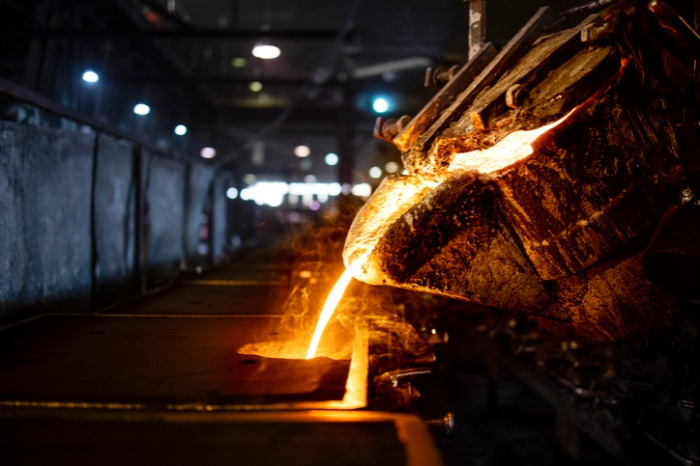
South Korean steelmakers, including the world’s sixth-largest steelmaker POSCO, are facing a longer-than-expected winter in steel demand as they are grappling with a triple whammy of the global real estate market slowdown, rising raw material costs and a flood of cheaper steel imports.
According to the steel industry on Sunday, hot rolled steel plates, the most widely used steel product, were traded at 910,000 won ($670) per ton as of Oct. 20, falling 8.1% from five months ago.
That is 13.3% cheaper than the price at the beginning of this year.
The fall in the price of steel bars has been steeper due to the deepening slump in the construction industry.
As of Oct. 20, the wholesale steel bar price hit 850,000 won per ton, down 12.4% from early June and 14.6% from the beginning of the year.
GLOBAL ECONOMIC SLOWDOWN
The Korean steel industry previously forecast a rebound in steel prices in the second quarter of this year but the longer-than-expected economic slowdown has delayed a recovery in the steel sector, elongating the steel industry winter.
Especially, the prolonged slump in the Chinese property market has taken a big toll on steel prices, according to a third-quarter earnings call by POSCO Holdings Inc., the parent of POSCO, last week.
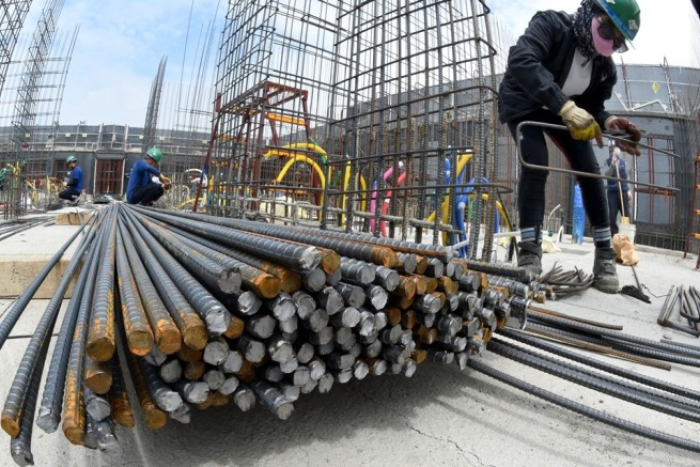
“The Chinese real estate market briefly recovered on the government’s stimulus measures but the recovery is slowing,” the company said, adding that Chinese steelmakers’ output cuts have also fallen short of expectations.
A day later, another major Korean steelmaker Hyundai Steel Co. also forecast a recovery in steel bar demand in the latter half of 2024, later than the industry’s earlier projection.
Korean steelmakers expect steel prices will remain low until the first quarter of next year at the least.
HIGHER RAW MATERIAL COST BUT CHEAPER STEEL IMPORTS
Despite the weak steel demand, raw material costs have risen significantly, partly due to labor walkouts in major coking coal-producing countries such as China and India.
Steelmakers in India and Southeast Asia have also ramped up steel output.
As a result, the iron ore price in the third quarter added $10 per ton from the prior quarter, while the coking coal price jumped $100 per ton over the same period, dragging down steelmakers’ profitability.
Korean steelmakers also have to fend off a flood of high-quality but cheap steel products imported from Japan due to the weakness of the Japanese yen.
The quality of low-priced Chinese steel products has also significantly improved recently, posing a threat to Korean rivals.
Worse yet, steel mills of Korea’s largest steelmaker POSCO could stop operating soon as the company’s labor union is threatening to go on strike for the first time in the company’s 55-year history as part of its collective bargaining this week.
POSCO Holdings' shares ended up 0.4% at 423,000 won on Friday, while Hyundai Steel shares lost 3.1% to close at 31,000 won.
Write to Hyung-Kyu Kim at khk@hankyung.com
Sookyung Seo edited this article.
More To Read
-
Oct 05, 2023 (Gmt+09:00)
-
Sep 20, 2023 (Gmt+09:00)
-
Aug 30, 2023 (Gmt+09:00)
-
Aug 21, 2023 (Gmt+09:00)
-
Aug 16, 2023 (Gmt+09:00)


